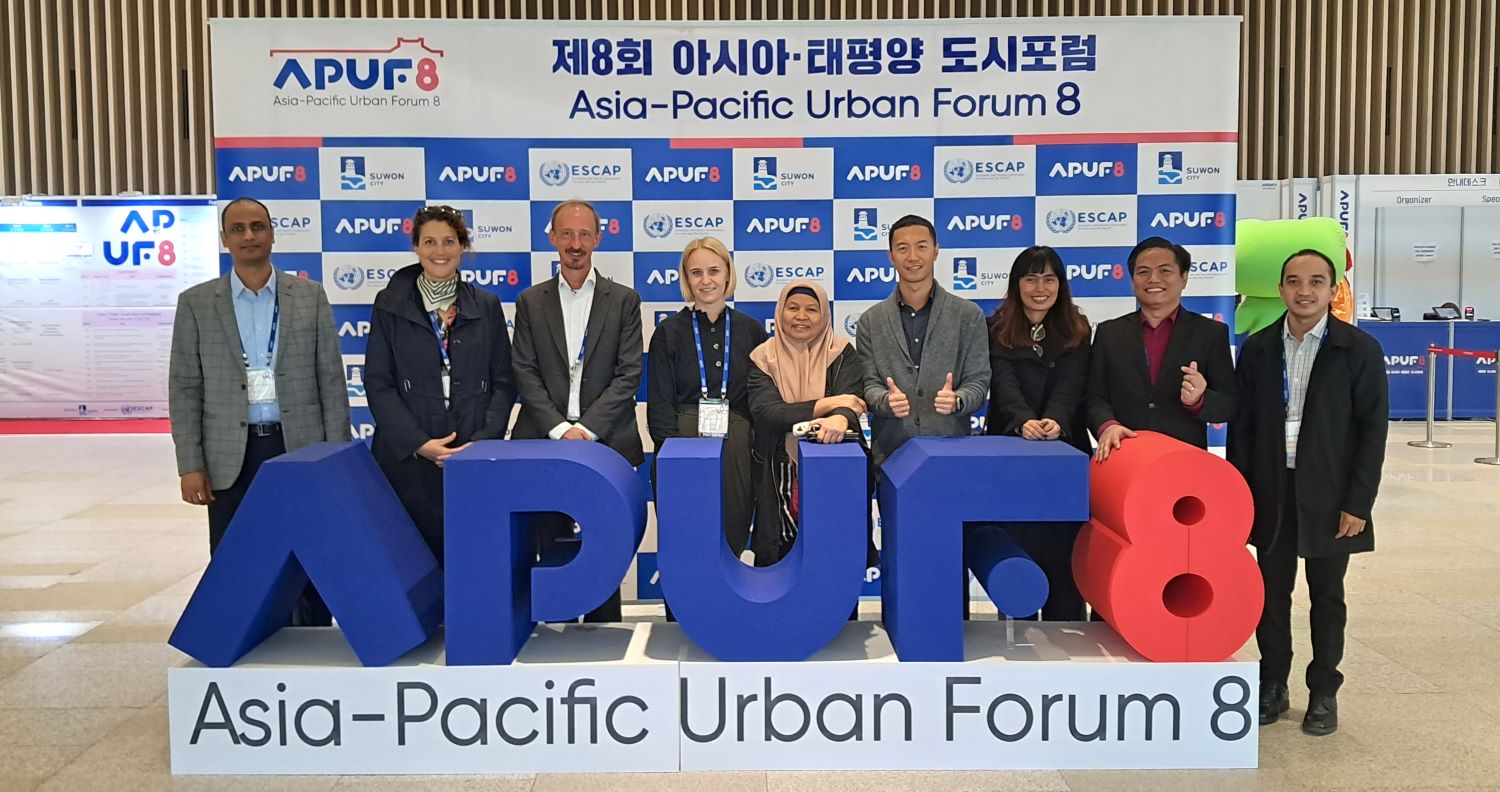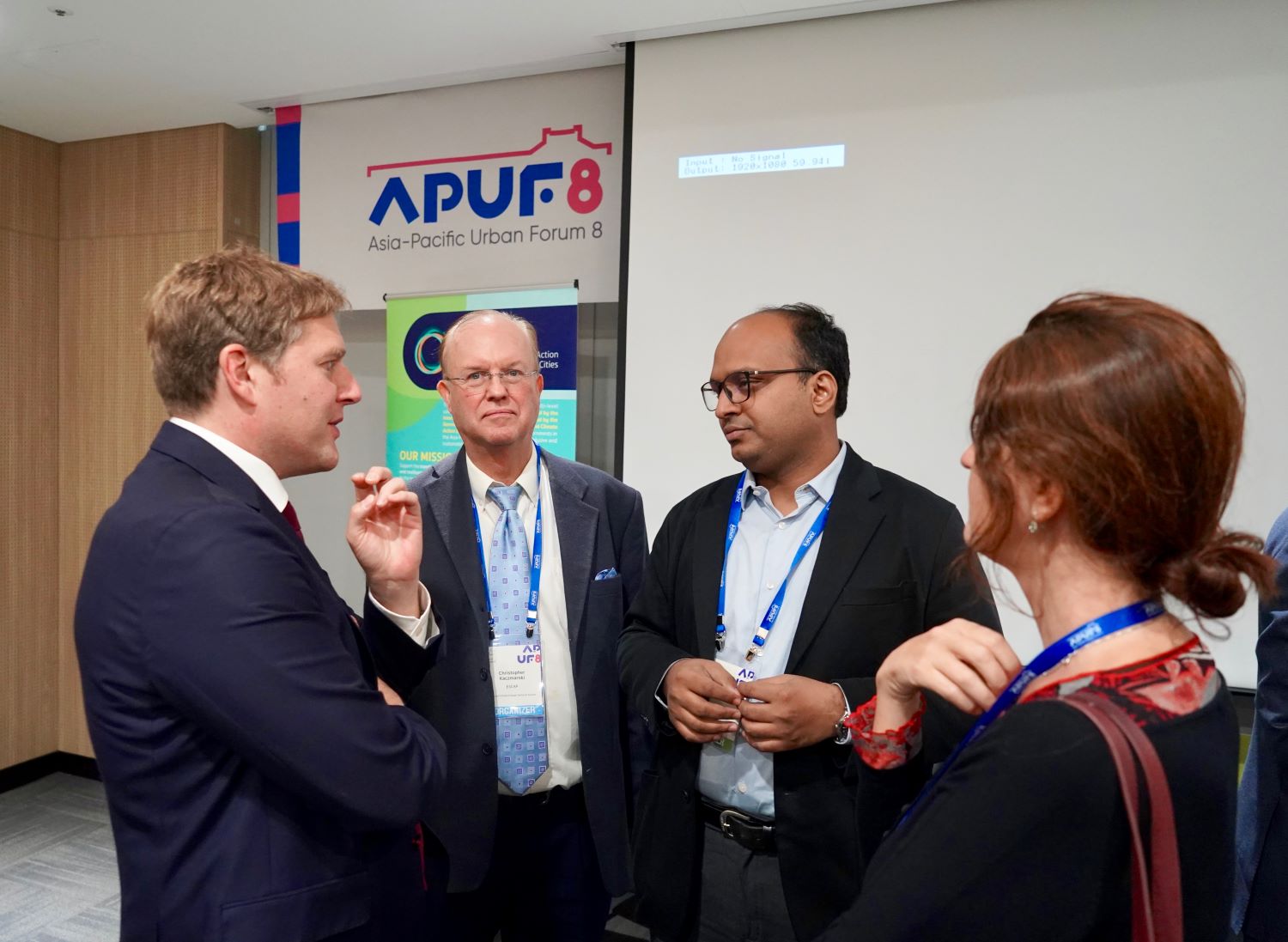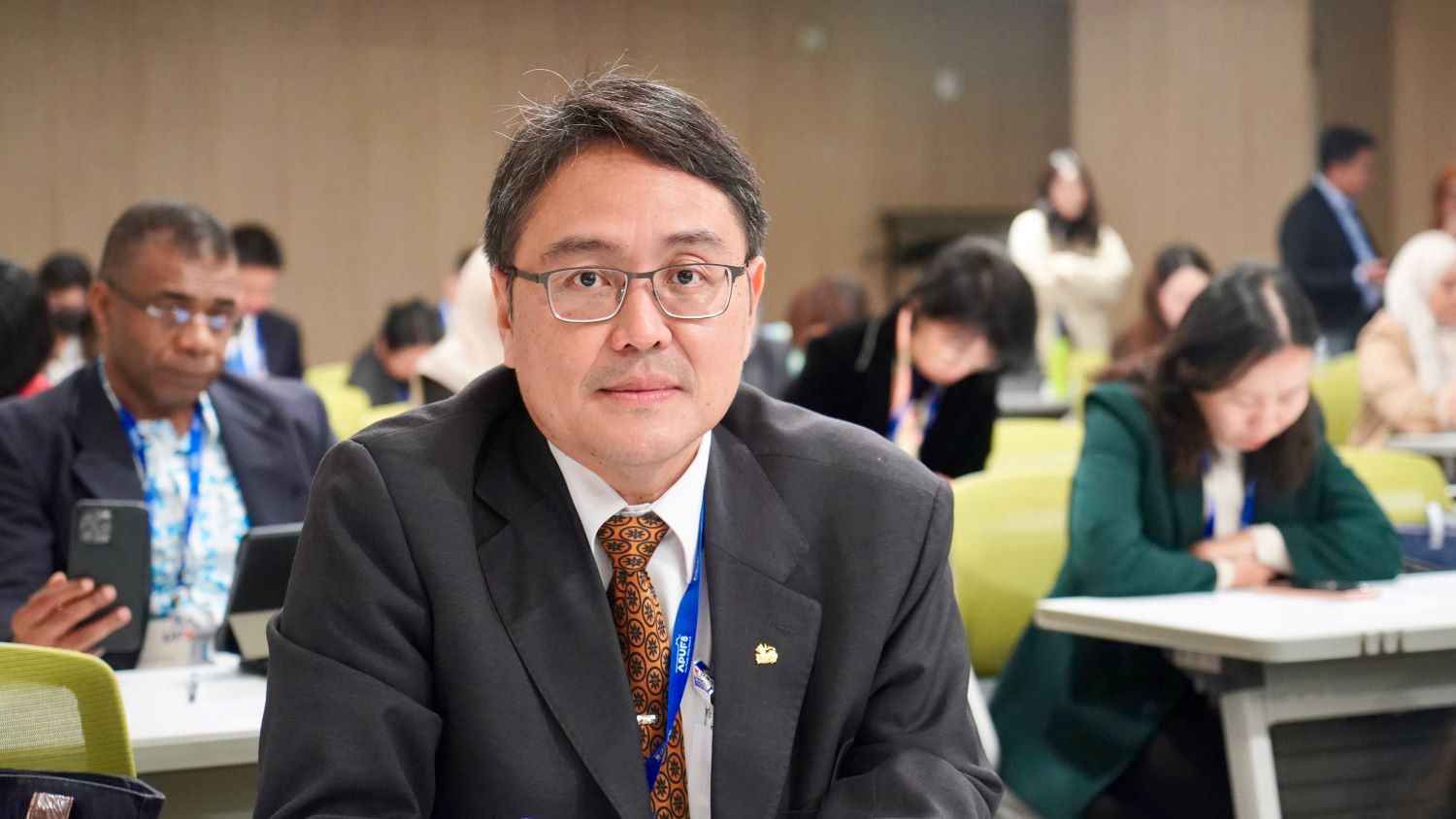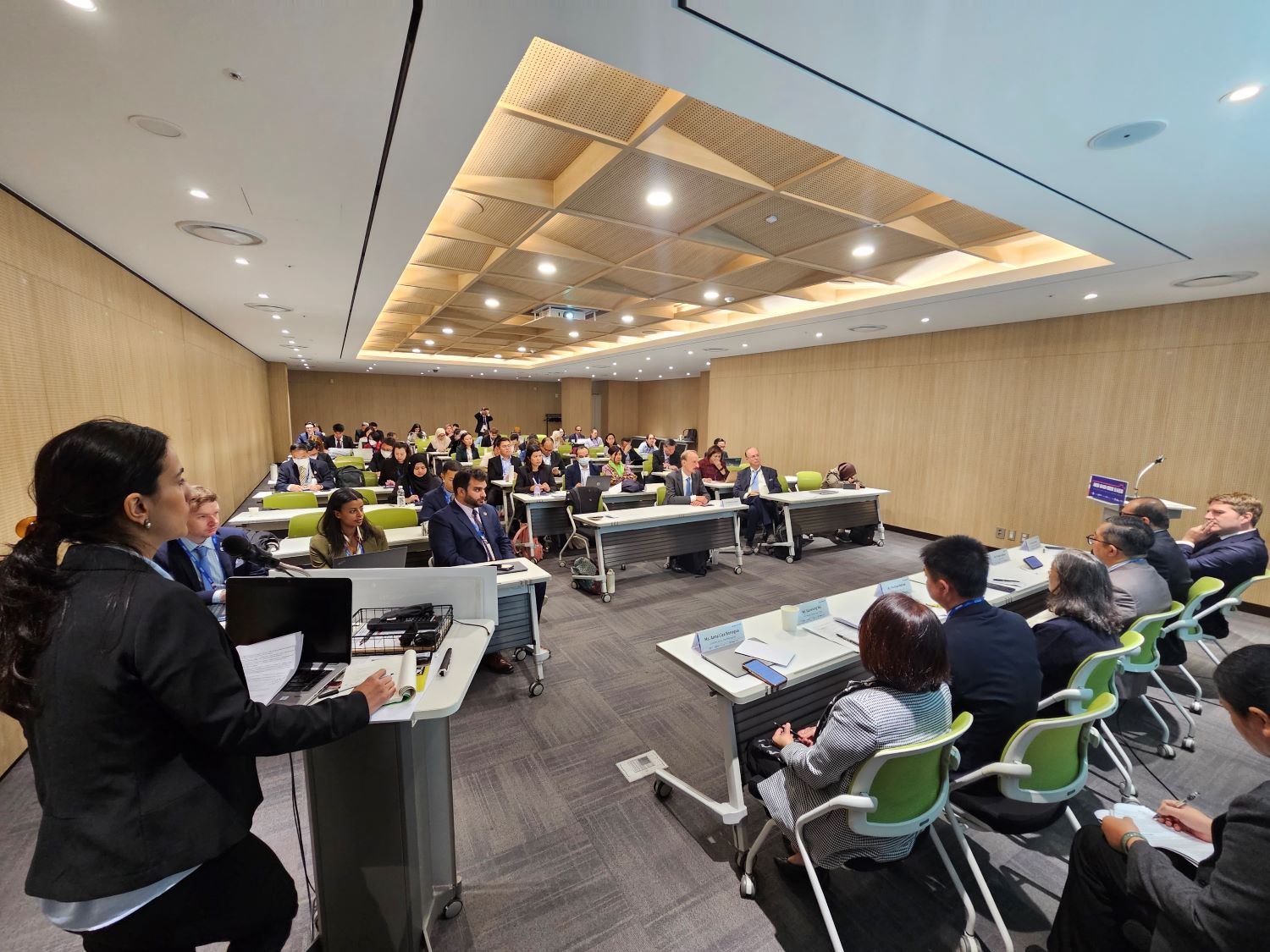Urban-Act at APUF-8: Moving Forward to Sustainable Urban Development

- Representatives from the Ministry of Interior actively participated in the regional multistakeholder forum “the 8th Asia Pacific Urban Forum” in Suwon City, Republic of Korea
- A key element in driving climate action at the city level, the session on climate finance was held under the joint auspices of GIZ, UNESCAP, UCLG ASPAC and CCFLA
- The UN ESCAP Executive Secretary warned of “global boiling”, underscoring the urgency of addressing unprecedented urban growth in Asia.
In a significant step towards sustainable urban development, Urban-Act, together with the key representatives from the project’s political partner, the Ministry of Interior, led by Acting Captain Theeraphong Krutdilakanan, Deputy Director General of the Department of Public Works and Town & Country Planning (DPT) and Second Lieutenant Soramongkhon Mangalasiri, Director of the Foreign Affairs Division, Office of the Permanent Secretary for Interior, Ministry of Interior, actively participated in the 8th Session of the Asia-Pacific Urban Forum (APUF-8) held in Suwon City, Republic of Korea from 23 – 26 October 2023.
The Asia-Pacific Urban Forum (APUF) is a key event hosted by the United Nations Economic and Social Commission for Asia and the Pacific (UNESCAP) which is one of the Urban-Act consortium partners. APUF-8 aims to provide a platform for knowledge exchange, collaboration, and discussions on sustainable urban development including the New Urban Agenda and the SDGs’ decade for action in the Asia-Pacific region. The event focuses on such crucial themes as urban and territorial planning, city climate action and resilience, inclusive urban digitalisation and innovation, and financing of urban solutions.
In addition, as part of the regional Urban-Act project, GIZ together with UNESCAP, United Cities and Local Governments Asia – Pacific (UCLG ASPAC) and Cities Climate Finance Leadership Alliance (CCFLA) held a parallel session titled “Enabling Frameworks to Support Asian Cities’ Ability to Access Climate Finance” on 24 October 2023, with the panellists drawn from participating Urban-Act partners.

The panel discussions, which followed the presentation by Eyerusalem Masale, Programme Associate, CCFLA-CPI (Secretariat for the CCFLA), on “Regional Assessment Methodology for Enabling Framework Conditions Related to Cities’ Ability to Access Climate Finance” – the methodology for assessing Enabling Framework Conditions (EFC) – provided important inputs that will be taken into account when finalising the EFC.

Key messages from the panellists covered 1) example of relevant government regulatory provisions from the Philippines; 2) local government conditionalities and experiences in Medan, Indonesia; 3) challenges in accessing climate finance faced in India; 4) high significance of innovative approaches to consolidated transboundary urban project finance through inter-municipal collaboration of six cities in the Indonesia–Malaysia–Thailand Growth Triangle (IMT-GT); and 5) examples of financing instruments and mechanisms presented by the international climate financing institution (GCF).

Opening remarks were delivered by Dr. Armida Salsiah Alisjahbana, Under-Secretary-General of the United Nations and Executive Secretary of ESCAP; Acting Captain Theeraphong Krutdilakanan, Deputy Director General of the Department of Public Works and Town & Country Planning, Ministry of Interior, Thailand; Heinrich Gudenus, GIZ, Project Director of Urban-Act
Dr. Armida Salsiah Alisjahbana, Under-Secretary-General of the United Nations and Executive Secretary of ESCAP, stressed in her opening remarks that the world has entered an era of “global boiling”. Asian cities, in particular, are growing at an unprecedented rate, and this growth poses both opportunities and challenges. “The way we plan, build, and manage our urban areas will determine whether we contribute to the problem or become part of the solution. It requires the right policies and the necessary financial resources. We need to define and develop mechanisms to ensure that our cities have access to the resources they need to transition to a low-carbon, climate-resilient future. This is not just an economic necessity; it’s a moral imperative,” she stated.
Acting Captain Theeraphong Krutdilakanan, Deputy Director General of the Department of Public Works and Town & Country Planning, Ministry of Interior, Thailand, emphasised Thailand’s commitment to sustainable urban development. “We have been fortunate to engage in meaningful partnerships and international collaborations with the Urban-Act project that have strengthened Thailand’s ability to deal with this complex issue.”
Heinrich Gudenus, GIZ, Project Director of Urban-Act, highlighted ongoing efforts and gaps in urban transformation. “And one step on this road is to – jointly with our colleagues from the CPI and the CCFLA project – suggest a robust method to assess the specific gaps, barriers and opportunities for urban climate finance in the countries. This tool should, on the one hand, provide enough flexibility to take different governance and administrative systems, different political cultures and realities into account; and, on the other, be suitable to lead to concrete and actionable recommendations that countries and cities and also development partners can use to work on improving the situation – and as Urban-Act, we will also try to play our part in that.”


The post-session atmosphere was filled with engaging conversations and networking vibes: A productive conversation with Heinrich Gudenus, Director of the Urban-Act project, Henry L. Yap, Undersecretary of the Department of Human Settlements and Urban Development in the Philippines, and Anna Liza Bonague, Director of DILG in the Philippines, along with their team.
Gallery
Heinrich Gudenus
Project director of Urban-Act
Email:heinrich.gudenus(at)giz.de
About Urban-Act
The Integrated Urban Climate Action for Low-Carbon and Resilient Cities (Urban-Act) is a regional project funded by the International Climate Initiative (IKI) of the German Federal Ministry for Economic Affairs and Climate Action (BMWK) for the period of April 2022 to September 2026. This regional project aims to support the transformation towards low-carbon and resilient urban development in Asia-Pacific while also contributing to countries Nationally Determined Contributions (NDCs) and the advancement of the Sustainable Development Goals (SDGs). Urban-Act is implemented in China, India, Indonesia, Philippines, and Thailand. Regional consortium partners include the Deutsche Gesellschaft für Internationale Zusammenarbeit (GIZ) GmbH, the United Nations Economic and Social Commission for Asia and the Pacific (ESCAP), United Cities and Local Governments Asia-Pacific (UCLG ASPAC), the Technical University Dortmund and the University of Stuttgart, as well as national consortium partners in each of the 5 partner countries. The Office of the Permanent Secretary, Ministry of Interior Ministry of Interior (MoI), is the political partner in Thailand.





